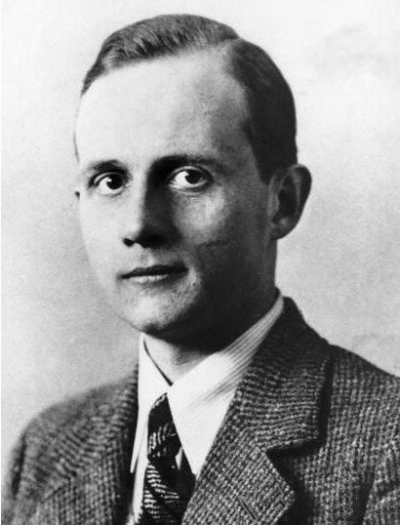Kristallnacht (German pronunciation: [kstalnat] (listen)) or the Night of Broken Glass, also called the November pogrom(s) (German: Novemberpogrome, pronounced [novm.b.poom] (listen)), was a pogrom against Jews carried out by the Nazi Party's Sturmabteilung (SA) paramilitary and Schutzstaffel (SS) paramilitary forces along with some participation from the Hitler Youth and German civilians throughout Nazi Germany on 910 November 1938. The German authorities looked on without intervening. The name Kristallnacht (literally 'Crystal Night') comes from the shards of broken glass that littered the streets after the windows of Jewish-owned stores, buildings and synagogues were smashed. The pretext for the attacks was the assassination of the German diplomat Ernst vom Rath by Herschel Grynszpan, a 17-year-old German-born Polish Jew living in Paris.
Jewish homes, hospitals and schools were ransacked as attackers demolished buildings with sledgehammers. Rioters destroyed 267 synagogues throughout Germany, Austria and the Sudetenland. Over 7,000 Jewish businesses were damaged or destroyed, and 30,000 Jewish men were arrested and incarcerated in concentration camps. British historian Martin Gilbert wrote that no event in the history of German Jews between 1933 and 1945 was so widely reported as it was happening, and the accounts from foreign journalists working in Germany drew worldwide attention. The Times of London observed on 11 November 1938: "No foreign propagandist bent upon blackening Germany before the world could outdo the tale of burnings and beatings, of blackguardly assaults on defenceless and innocent people, which disgraced that country yesterday."Estimates of fatalities caused by the attacks have varied. Early reports estimated that 91 Jews had been murdered. Modern analysis of German scholarly sources puts the figure much higher; when deaths from post-arrest maltreatment and subsequent suicides are included, the death toll reaches the hundreds, with Richard J. Evans estimating 638 deaths by suicide. Historians view Kristallnacht as a prelude to the Final Solution and the murder of six million Jews during the Holocaust.
Ernst Eduard vom Rath (3 June 1909 – 9 November 1938) was a German diplomat. He is remembered for his assassination in Paris in 1938 by a Polish Jewish teenager, Herschel Grynszpan, which provided a pretext for the Kristallnacht, "The Night of Broken Glass".

1938Nov, 9
The Nazi German diplomat Ernst vom Rath dies from gunshot wounds by Herschel Grynszpan, an act which the Nazis used as an excuse to instigate the 1938 national pogrom, also known as Kristallnacht.
Choose Another Date
Events on 1938
- 18Feb
Nanking Massacre
Second Sino-Japanese War: During the Nanking Massacre the Nanking Safety Zone International Committee is renamed "Nanking International Rescue Committee" and the safety zone in place for refugees falls apart. - 12Mar
Austria
Anschluss: German troops occupy and absorb Austria. - 23Sep
Munich Agreement
Mobilization of the Czechoslovak army in response to the Munich Agreement. - 30Sep
Munich Agreement
Britain, France, Germany and Italy sign the Munich Agreement, allowing Germany to occupy the Sudetenland region of Czechoslovakia. - 30Oct
The War of the Worlds (radio drama)
Orson Welles broadcasts his radio play of H. G. Wells's The War of the Worlds, causing anxiety in some of the audience in the United States.

 English
English  español
español  français
français  português
português  русский
русский  العربية
العربية  简体中文
简体中文 